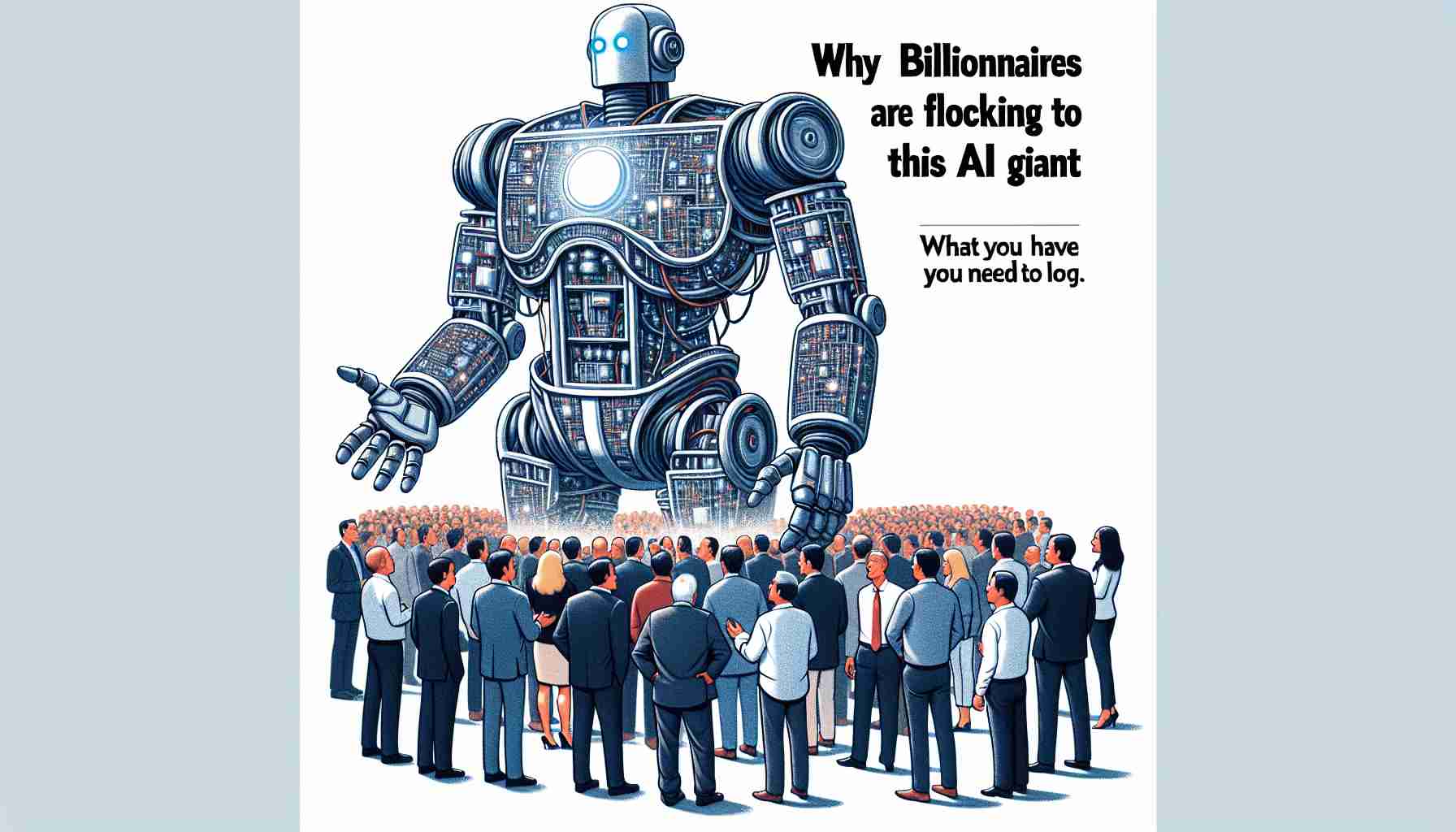
The excitement around artificial intelligence (AI) is escalating both on Wall Street and in everyday circles. Taking center stage is Nvidia, which has seen its revenue skyrocket from $17 billion in 2021 to an astonishing $96 billion over the past year. This surge has been a major driver in propelling stock market indexes to unprecedented levels.
In parallel, the unveiling of ChatGPT by OpenAI has set off a competitive race among tech giants to develop more advanced generative AI tools. Projections from Next Move Strategy Consulting suggest that the AI market could surpass $1.8 trillion by the end of the decade, offering a goldmine for companies willing to innovate.
The landscape, however, is cluttered with numerous firms vying for slices of this lucrative market, making investment choices complex. One way to navigate this is by observing the investment patterns of billionaire hedge funds. Recent 13F filings with the Securities and Exchange Commission revealed noteworthy stock movements by these funds.
Alphabet, a leader in AI advancement with its unit Google DeepMind, has captured investors’ attention. It recently launched an iPhone app for Gemini, its AI chatbot alternative to ChatGPT, and is allegedly developing Project Jarvis for automating web-based tasks. Moreover, about 60% of generative AI startups leverage Google Cloud, according to Technology Magazine.
Hedge funds such as Tudor Investment, Viking Global Investors, Bridgewater Associates, and Tiger Global have considerably increased their shares in Alphabet, sensing its promising potential fueled by robust financial growth. With Alphabet’s revenue climbing 15% to $88 billion and a favorable price-to-earnings ratio, the company stands out as a compelling choice for long-term investment.
A New Era of Artificial Intelligence: Who Really Benefits?
The rise of artificial intelligence (AI) continues to be a transformative force across global economies, not just in technology but in every aspect of life. While companies like Nvidia and Alphabet are embracing this change, a myriad of implications ripple through societies, economies, and industries, presenting both exciting prospects and pressing challenges.
Beyond the Numbers: Real-World Impacts of AI
While AI technology is advancing rapidly, industries outside of tech are increasingly feeling its effects. The implementation of AI in healthcare, for example, is revolutionizing patient care with predictive analytics, personalized medicine, and automated diagnostics. In agriculture, AI-powered drones and sensors optimize crop yields, assisting farmers in resource management. However, these advancements raise critical questions about data privacy, job security, and ethical considerations.
Interesting Facts and Controversies
1. AI and Employment: While AI leads to job creation in tech sectors, it simultaneously displaces workers in traditional industries. An interesting study by the World Economic Forum suggests that AI could displace 85 million jobs by 2025, but at the same time, create 97 million new roles. The question remains on how society can effectively prepare workers for this shift.
2. Ethical Dilemmas: The use of AI in government surveillance has sparked debates over privacy rights and civil liberties. Countries with lax regulations could exploit AI technology for mass surveillance, while others may struggle to implement adequate oversight.
3. Economic Inequality: As investment in AI ensures considerable financial returns for tech giants, disparities between technology-driven economies and those lagging behind widen. Nations unable to invest in AI research may find themselves at a competitive disadvantage, leading to a digital divide on a global scale.
Advantages and Disadvantages of AI Integration
Advantages:
– Efficiency and Productivity: AI enhances operational efficiency by automating repetitive tasks.
– Innovation in Services: It leads to the development of new products and experiences.
– Better Decision-Making: AI provides data-driven insights for more informed decision-making.
Disadvantages:
– Job Displacement: Automation poses a threat to traditional employment sectors.
– Privacy Concerns: The vast amounts of data required by AI raise issues around data privacy.
– Bias and Fairness: AI systems can replicate existing biases if not carefully monitored and calibrated.
What Does the Future Hold for AI?
The question on everyone’s mind is, how can society harness the power of AI responsibly? Safeguarding ethics in AI development is paramount. Governments may need to introduce regulations to maintain public trust while stimulating innovation.
Suggested Links:
– OpenAI
– Nvidia
– Google
In conclusion, while AI offers remarkable opportunities, it is essential for stakeholders at all levels to engage in conscientious planning to ensure these technologies benefit everyone equitably. As AI continues to shape the future, the responsibility lies with us to direct its influence positively.
